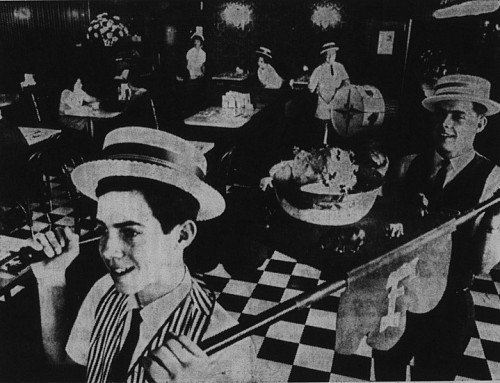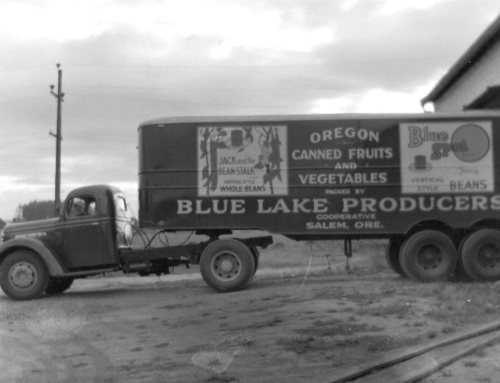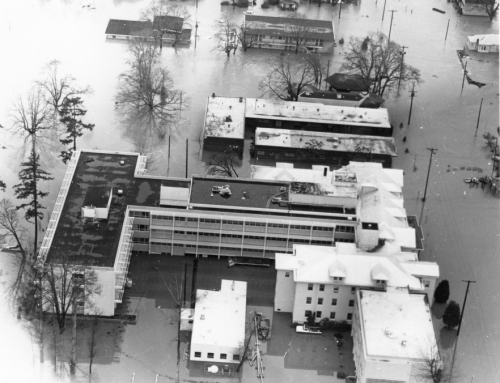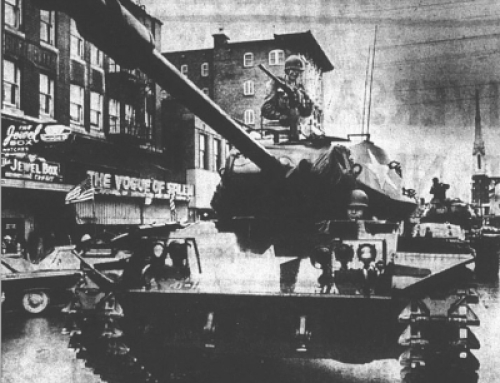by Richard van Pelt, WWI Correspondent
The information in this article was published March 24, 1915, but is pertinent to the holiday season.
The pace of reporting was slower in 1914 than today as the headline in the Capital Journal “Christmas Spirit Is Felt Even In Wartime: illustrates. The article describes the Christmas truce of 1914. Written by Phil Rader, a San Francisco resident who had joined the French Foreign Legion, the article powerfully describes the trenches and the mood of soldiers on both sides.
For twenty days we had faced that strip of land, forty five feet wide, between our trench and that of the Germans, that terrible No Man’s Land, dotted with dead bodies, criss-crossed by tangled masses of barbed wire. That little strip of land was as wide and as deep and as full of death as the Atlantic Ocean; as uncrossable as the space between the stars; as terrible as human hate. And the sunshine of the bright Christmas morning fell on it as brightly as if it were a lover’s land or the aisle is some grand cathedral.
These reports have the purpose of setting the stage for America’s involvement in the war, which will not commence for another two years. The hope is that readers today will be able to see the coming war from the perspective of those who followed the course of the war as it unfolded. It also furnishes us with a window into the past, providing us with insights into how news was reported then in comparison with today. It is hard to imagine news being reported today with the fervency of that of 1914.
Rader continues his article with what can best be described as a multi-cultural approach to events:
I don’t know how the truce begin in other trenches, but in our hole Nadeem began it – Nadeem, a Turk, who believes that Mohammed and not Christ was the Prophet of God. The sunshine of the morning seemed to get into Nadeem’s blood. He was only an enthusiastic boy, always childishly happy, and when we noticed, at the regular morning shooting hour, that the German trenches were silent Nadeem began to make a joke of it. He drew a target on a board, fastened it on a pole, and stuck it above the trench, shouting to the Germans:
“See how well you can shoot.”
Within a minute the target had been bulls’-eyed. Nadeem pulled it down, pasted bits of white paper where shots had struck, and held it up again so that the Germans could see their score. In doing so, Nadeem’s head appeared above the trench, and we heard him talking across the No Man’s Land. Thoughtlessly I raised my head, too. Other men did the same. We saw hundreds of German heads appearing. Shouts filled the air. What miracle had happened? Men laughed and cheered. There was Christmas light in our eyes and I know there were Christmas tears in mine. There were smiles, smiles, smiles, where in days before there had been only rifle-barrels. The terror of No Man’s Land fell away. The sounds o happy voices filled the air. We were all inhumanly happy for that one glorious instant – English, Portuguese, Americans, and even Nadeem, the Turk – and savages as we had been, cavemen as we were, the awfulness of war had not filled the corners of our hearts where love and Christmas live.
I think Nadeem was first to sense what had happened. He suddenly jumped out of the trench and began waving his hands and cheering. While he was doing this a ponderous German, with a happy smile that exposed two rows of glittering teeth, climbed out of his trench and shouted;
“Lieutenant Shroder presents his compliments to your lieutenant and desires to know if he will select four men to come to the middle of the neutral territory to arrange for a truce for burying the dead.”
Our lieutenant agreed in an instant. I was one of the four men selected, and, I shall never forget how I felt as we advanced to meet the four German soldiers and their lieutenant who were coming toward us. We felt as if we wanted to throw our arms about these men. They told me later in the day that the same desire was upon them. The hatred of war had been suddenly withdrawn and it left a vacuum in which we human beings rushed into contact with ash other. You felt their handshakes – double handshakes with both men – in your heart.
This may be nothing but spin and anti-war propaganda. Some have claimed (photographs notwithstanding) this truce never occurred. Whatever events brought these soldiers to spend weeks within talking distance of each other, another force brought them out of their trenches in what can only be described as a transcending sense of comradeship: we’re here; we are on opposite sides; we don’t know why, but let us make the most of this moment.
The truce was arranged: There was no firing for one hour and the men from both sides were to come out and bury their dead. The soldiers flocked from both sides of the trenches. They rushed at each other and shook hands.
“I want to have your photograph,” said the German lieutenant to our party. He sent back for his camera and we enemies stood with our arms about each other’s shoulders, in horse-shoe formation, while the lieutenant snapped his camera.
“If I don’t have a chance to send you the prints before the was is over,” he said, “I shall see that you get these afterwards.
And he took our addresses. At last the bodies were buried. the hour of truce had passed. But the men did not go back to the trenches. In groups, all stood about that once terrible strip of no man’s land. The Germans and the legionnaires sat talking or playing cards, exchanging tobacco and cigarettes and laughing and joking.
“Don’t blame us,” was the tone of the Germans’ talk. “It isn’t our fault that we are fighting. We don’t know what it;s all about. We all have wives and children ad we all are just the kind of men that you are. We are damned fools and so is everyone else who is fighting.
The truce continued for the balance of the day. Rader describes a German band playing the Marseilles. The French responded with “It’s a Long Way to Tipperary.” A black cook from Galveston, George Ulland, played “Die Wacht Am Rhein” on his harmonica. But, it came to an end:
There was no shooting all night until about six in the morning when the sound of rifles was heard.
Nadeem couldn’t measure human nature unerringly. He had been the first to feel the holiday spirit of Christmas Day but, on this day after Christmas, he failed to sense the grimness of war that had fallen over the trenches during the night. Early in the morning he jumped out of the trench and began waving his hands again. John Street, an American, who had been an evangelist in St. Louis, jumped out with him, and began to shout a morning greeting to a German he had made friends with the day before.
There was a sudden rattle of rifle-fire and Street fell dead, with a bullet through his head. The sun was shining down again on a world gone mad.
The Christmas Truce has become one of the legends of the Great War. On the centennial of the truce, the British grocery chain, Sainsbury’s, has the following holiday television advertisement, which is well worth looking at.








Leave A Comment